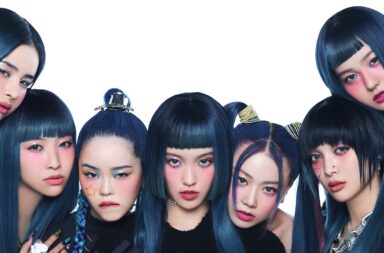 In the settling dust of their respective contract termination lawsuits, former Exo members Wu Yifan (Kris) and Luhan have re-emerged in the entertainment industry with schedules suggesting movie roles and promotional appearances.
In the settling dust of their respective contract termination lawsuits, former Exo members Wu Yifan (Kris) and Luhan have re-emerged in the entertainment industry with schedules suggesting movie roles and promotional appearances.
These activities are not newsworthy in themselves, consisting mainly of minor roles and sad songs for movie soundtracks, but it’s the implication behind them that makes the public pay attention. This is the Chinese entertainment industry. Wu Yifan and Luhan are formerly of SM, Exo, and K-pop, and now they are embarking on new careers as entertainers in China.
What does this mean for the China-line idols who continue to train, work, and promote in Korea? Like Wu Yifan and Luhan, why do Chinese idols leave? But perhaps more importantly — considering the interest and opportunities given to Wu Yifan and Luhan in their home country — why do they stay?
First, something obvious: it’s not easy working in a foreign country. And it’s even harder if your chosen occupation involves communication, whether in songs, interviews, variety shows, or fan events, in a language that is not your own. Language barriers present the largest challenge to Chinese idols hoping to promote in Korea. Actual singing is not the problem in most cases, as pronunciation can be fixed with practice.
Where the challenge of a language barrier arises is in non-performance promotions as Chinese idols attempt to engage audiences with varying language limitations. Exo’s Showtime has revealed Tao and Kris growing frustrated after repeatedly losing a game they did not understand, and f(x) leader Victoria’s early broadcast appearances can be exemplified by a scene in Invincible Youth:
“How many times have you worn that shirt?” Kim Shin-young asks. Victoria stares blankly.
“’How many times?’ What does that mean?” she asks, as three large question marks appear above the subtitles. The laugh track loops.
Inability to communicate often means being relegated to the back during interviews and most definitely means being passed up for drama or movie roles. Fans are also less likely to form an attachment to a member who is kept quiet and may even mistakenly perceive said member to be shy or bland when it is really a limited grasp of the language rather than actual personality.
A slightly more insidious disadvantage for Chinese idols was brought up within Wu Yifan and Luhan’s lawsuits against SM, as well as by former Super Junior member Hangeng years before. All three had filed contract termination requests, citing one of the causes to be “differential treatment of Korean and Chinese members” by their company. The primary cause for complaint was that as a company, SM had been deliberately restricting their individual activities to a point that had become disproportionate to the members’ popularity, whether in Korea or China.
And this is where it gets sticky, because this may very well be solely SM to blame, rather than the industry. But what these claims do verify is a ceiling of sorts, in which Chinese (and non-Korean) idols can rise above “foreign friend” status but can never hit the heights of popularity as the nation’s first love/little sister/little brother/what-have-you. Companies, realizing the differences in potential, may then proceed to give preferential treatment and opportunities to native idols as a result.
So why do Chinese idols chose to stay in Korea?
For one, “outsider” status is not completely disadvantageous. As the K-pop industry continues to try and crack the Chinese market, niche roles for specifically for Chinese idols are popping up. The program Idol’s True Colors on C-MBC Radio is hosted by Zhou Mi, Fei, and Jia, who discuss amongst themselves and interview guests completely in Mandarin. Fiestar’s series of A-HA! language lesson videos have member Cao Lu translating popular Korean slang into Chinese alongside her other members.
 And as entertainment companies continue to focus on expanding into China, Chinese idols in K-pop often are allowed to capitalize on their position and command activities overseas. Subgroups such as Exo-M and Super Junior M spend extended periods of time promoting in China, as do groups like Tasty or Uniq. As a result, Chinese idols are given the opportunity to raise their visibility in both Korea and China, whether through unique opportunities in Korea or through China-centric promotions in which they are more capable of conveying themselves to the audience.
And as entertainment companies continue to focus on expanding into China, Chinese idols in K-pop often are allowed to capitalize on their position and command activities overseas. Subgroups such as Exo-M and Super Junior M spend extended periods of time promoting in China, as do groups like Tasty or Uniq. As a result, Chinese idols are given the opportunity to raise their visibility in both Korea and China, whether through unique opportunities in Korea or through China-centric promotions in which they are more capable of conveying themselves to the audience.
The fact of the matter is that Korean entertainment remains more widely marketed among Asian countries compared to Chinese entertainment. In 2008, South Korea’s music revenue was double that of mainland China’s, and the difference has remained even in more recent years. China logged a 16.3% increase of cultural exports during 2012, but visual art and published works made up the majority of these cultural products. Chinese exports of visual and audio media actually dropped a whopping 44.2% that same year.
Taking this into consideration, Chinese entertainers who stick with the K-pop industry are not guaranteed to achieve a large fanbase or a hit song. They are, however, given the opportunity to pursue their career in a music market that can offer better odds, backed by a stable growth and greater global attention. While many Mando-pop artists have become popular in China, those who consider a career in Korea are more likely to be enticed by the wide breadth of influence Korean entertainment culture currently controls within Asia.
Chinese idols stay because K-pop serves as a springboard for later successes in either Korea or China should they “make it” now. Wu Yifan and Luhan were able to attract casting offers and OST features in such a short period of time because the Chinese audience is already aware of who they are, and this is thanks to their time as members of the wildly popular group Exo. And there is success to be found in Korea, as well: Zhou Mi, longtime member of Super Junior M, just released his solo debut Rewind. For China-line idols, a career in K-pop may offer entertainers greater means to establish themselves as respected artists in Korea, or to return home with sights set on new ambitions.
(KBS2, South China Morning Post, Xinhua, Images via weibo, Kaila Pictures, CJE&M)



